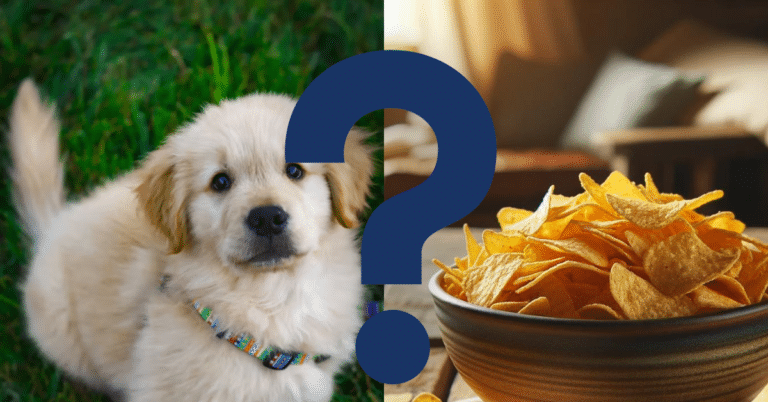Can Dogs Eat Apricots? A vet’s Opinion

Apricots are a good source of Fiber and Vitamin C and A, but can you feed apricots to dogs?
While apricots are not strictly poisonous to dogs, they should not be consumed by them. This is because apricots, like many other fruits, contain pits or seeds that can be dangerous to dogs if consumed. The pits contain cyanide, which is deadly to dogs in big amounts and can cause a variety of health issues including trouble breathing, seizures, and even death.
Benefits of Apricots for dogs
If given in moderation and in the appropriate form, apricots can provide some nutritional benefits to dogs. Here are some possible apricot benefits for dogs:
- Vitamins And Minerals: Apricots are high in vitamins A and C, which can help a dog’s immune system and overall health. They also include minerals such as potassium and iron.
- Fibre: Apricots are high in dietary fibre, which can help dogs with digestion and intestinal regularity.
- Apricots Are High In Antioxidants, which can help protect dogs’ cells from damage and promote healthy ageing.
However, apricots should be fed to dogs in moderation and without the pits or seeds, as they can be poisonous to dogs. The pits contain cyanide, which can cause a variety of health concerns if consumed in high amounts. Apricots are also strong in natural sugars, which can cause digestive issues and upset tummies in dogs if ingested in big quantities. As a result, before introducing any new foods to your dog’s diet, including apricots, always discuss with your veterinarian.

How To Safely Give Apricots To Dogs?
If you wish to feed apricots to your dog, here are some guidelines to follow:
- Remove The Pit: Before giving your dog an apricot, make sure to remove the pit or seed. If swallowed, cyanide in the pit can be toxic to dogs.
- Cut The Apricot Into Little Pieces: To make it easier for your dog to chew and digest, cut the apricot into small, bite-sized pieces.
- Feed In Moderation: Apricots are high in natural sugars and, if consumed in big quantities, can cause stomach distress. Apricots should be fed to your dog in moderation and as a treat only, not as a regular part of their diet.
- Consider Dried Apricots: Because they do not include pits, dried apricots are a safer option for dogs, but they should still be given in moderation due to their high sugar level. Look for dried apricots that are unsweetened and have no extra preservatives or chemicals.
- Check Or Allergies: Just as with any new food, it’s critical to keep an eye out for any signs of allergic reactions in your dog. If your dog develops symptoms such as itching, swelling, or difficulty breathing, discontinue feeding apricots immediately and visit your veterinarian.
- Consult Your Veterinarian: If you have any questions or concerns regarding giving apricots to your dog, please contact your veterinarian.
Will Apricots Make A Dog Sick?
Apricots can make a dog sick if eaten in big amounts or if the pit or seed is consumed. The pit of an apricot contains cyanide, which is deadly to dogs in big quantities and can cause a variety of health issues such as trouble breathing, seizures, and even death. The apricot flesh itself is not poisonous to dogs, but it is abundant in natural sugars and, if ingested in big quantities, can cause digestive difficulties and upset stomachs in dogs.
If your dog ate apricots, keep an eye out for symptoms of discomfort or illness, such as vomiting, diarrhea, or lethargy. If you see any of these signs, seek advice from your veterinarian on what to do next. In general, it’s better to avoid feeding your dog foods that hasn’t been specially prepared to meet their nutritional demands. If you are unsure whether apricots are safe for your dog to eat, seek advice from your veterinarian.
Dogs should not be fed apricot scones or other baked items containing apricots. This is due to the high sugar, salt, and fat content of scones, which can cause digestive problems and other health issues in dogs if taken in significant quantities. Furthermore, many baked items contain dog-toxic substances such as chocolate or raisins.While modest amounts of plain, unsweetened scone may not be hazardous to dogs, it’s recommended to err on the side of caution and avoid feeding them to your dog entirely. If you want to offer your dog a treat, look for ones that are specifically designed for dogs and are low in sugar and fat.

Vet’s Summary
Veterinarians’ views on feeding apricots to dogs differ depending on the individual dog’s health and dietary demands. When given in moderation and properly cooked, several doctors believe apricots are a safe and nutritious treat for dogs. Others, on the other hand, may advise against giving apricots to dogs due to the hazards involved with consuming the pits or large amounts of sugar.
In general, contact with your veterinarian before introducing any new food to your dog, including apricots. They can advise you on whether apricots are suitable for your dog and how much to feed, as well as any potential hazards or problems depending on your dog’s specific health history and dietary requirements. In addition, if your dog has any negative reactions after eating apricots, contact your veterinarian straight away for guidance on what to do next.
Probiotics may be especially beneficial for dogs suffering from digestive difficulties such as diarrhoea or constipation, as well as dogs who have recently had antibiotics, which can alter the normal balance of gut bacteria.
When selecting a probiotic supplement for your dog, search for one that is specifically made for dogs and contains bacteria strains recognized to be good to canine digestive health. Additionally, before giving your dog any new supplements, consult with your veterinarian. They can advise you on which products are best for your dog’s unique needs and how much to provide.
Probiotics can help your dog’s digestive health and overall well-being in general, but they should always be used in conjunction with a balanced diet and regular veterinary treatment.
Probiotics can help your dog’s digestive health and overall well-being in general, but they should always be used in conjunction with a balanced diet and regular veterinary treatment.
Videos To Watch
If you are wondering what related foods are good to give your dog, watch this
The above video helps you understand what related foods you can feed your dogs from peanut butter to yogurt. It is an informative video that describes the essential nutrients that can serve as a great source of immunity boost.
And if you want to know what a dog can NOT eat, watch this:
This link will guide you to avoid food items that can put your dog’s life in danger. The video discusses 22 items that, if consumed in large numbers, can kill your dog. Keep these foods out of reach of your small companions, and everything will be OK.






